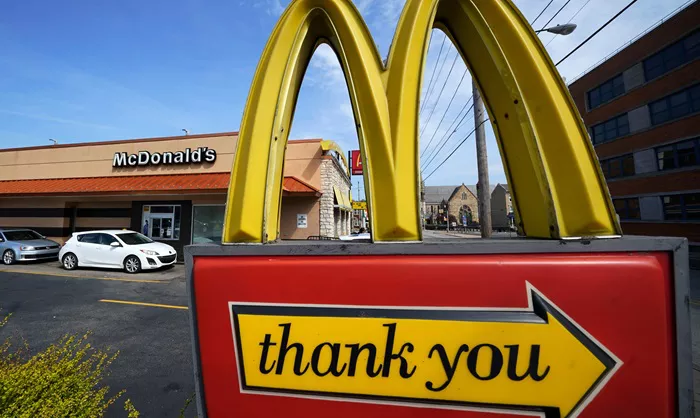McDonald’s shares have declined by 1.7% following a downgrade from equity analysts at Redburn Atlantic, who cited the growing impact of popular weight loss drugs on consumer behavior. The shift, they say, could lead to a significant drop in fast food demand.
The downgrade moves McDonald’s stock rating from “Buy” to “Sell” and is based on the increasing use of GLP-1 weight loss drugs such as Ozempic and Wegovy. These medications, which are designed to suppress appetite, are changing not only how much people eat but also who is choosing to eat out. According to Redburn Atlantic, this trend could result in McDonald’s losing as many as 28 million customer visits each year—potentially costing the company around \$482 million in annual revenue.
Analysts describe these drugs as “demand disruptors” for the broader restaurant industry. They suggest that the drugs are not leading people to choose healthier meals, but are instead reducing the desire to eat altogether. This could mark the beginning of a larger shift in consumer habits away from fast food and other calorie-dense options.
One key insight from Redburn’s report is that lower-income consumers, who make up a large share of McDonald’s customer base, are most affected by the appetite-suppressing effects of GLP-1s. These individuals are more likely to cut back on eating out and to sustain that change. Higher-income consumers, by contrast, tend to return to their previous habits after an initial decline in dining out.
This development comes amid growing concern over “pricing fatigue” in the restaurant industry. The price difference between eating at home and dining out has narrowed, weakening one of fast food’s traditional appeals—affordability. A meal for two at McDonald’s, once seen as a cheap fallback when no one wanted to cook, now costs about the same as preparing food at home.
Still, not all analysts believe fast food is facing an imminent crisis. Peter Saleh, managing director and restaurant analyst at BTIG Global Financial Services, told CBS News that most McDonald’s customers are not yet the ones using GLP-1 medications, which remain expensive and largely out of reach for many Americans. However, he cautions that the long-term outlook could change as these drugs become more widely accessible.
For now, McDonald’s and the broader fast food sector face growing uncertainty as both changing eating habits and tighter household budgets reshape the way Americans dine.
Related Topics:
Medicaid Changes May Limit Weight Loss Drug Access in PA
Woman Reveals Her Daily Meals for Losing Inches After Dramatic Weight Loss


